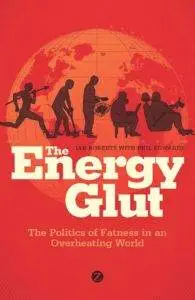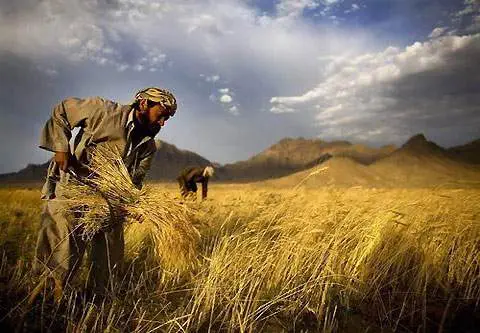
An interesting co-relation between energy, fatness and global warming is of relevance today. Perhaps not entirely, as I wonder if it really affects some parts of the world where human energy is utilized to optimum levels. I was not totally convinced after watching the Inconvenient Truth, which spoke of the problem of global warming but failed to point to the perpetrators of this slow death of the globe. This could at best have been a political exercise before elections. The fact remains that greed and rampant exploitation is behind the state of the planet.
The Energy Glut by Ian Roberts with Phil Edwards captures events that connect “The Politics of Fatness and Global Warming.”
In the developed and developing world (if there is any such thing, two terms that really do not define development, only profile countries), the automobile and automation has resulted in lesser use of the human body for its own mobility. The entire architecture and urban planning have almost been taken over by the ubiquitous motor car that consumes energy. This has resulted in lesser physical work by human beings. Conversely, the availability of food as energy is available in plenty where there is more automation, resulting in people becoming fat.
The UN measures the fatness of a country through BMI (body mass index, which is bodyweight divided by the square of body height). The world is getting fatter as energy consumption increases and results in more global warming. They are all related and this is an absolute recipe for disaster.
Public policy has emerged over obesity, emission control and matters such as zoning of schools. This falls short to address the real problem i.e.: we have forgotten to walk and expend energy, while more and more high energy food is dished out. Governments invariably make individuals responsible for obesity, blaming it on the lifestyle they choose, but in reality, the whole world is getting obese as the BMI averages increase year on year and the world gets warmer. Likewise, governments are not interested to make roads safe for pedestrians and traffic or make a cyclist-friendly environment.
Road accidents and death are other aspects of this energy consumption. Government policy views this as an individual carelessness. Children seem to be affected the most. When there was an energy crisis, the accidents numbers took a dip, confirming the relationship.
In the case of China, not long ago in the mid-90s, the bicycle was the main means of transportation, but then with liberal economic policies and liberalization, cars, energy consumption, obesity and road accidents are in large proportions. India too followed suit. In a race to become global economic powers, public policy that can make life better for the man on the streets has suffered.
Fatness is a pandemic and its epicentre in the US. Cheap petrol means more cars, miles, more accidents, greater risks to cyclists and greater dependency on the car and then fatness. The availability of the motor car and cheap fuel gave way to low-density living. A car became a necessity. More so in the US than any other part of the world, the motor car dictated urban planning. Now imagine the chaos that the motor car can create in cities that are centuries old. This is happening fast in countries like India, where population density, centuries-old streets are getting clogged with cars moving at a snail’s speed. There is hardly any place to park cars let alone drive in them. It is exacerbated by a society that is driven to material possession, the forming of a new middle class. Unfortunately, car manufacturing has become a yardstick of GDP measure, even though it may not suit population density.
Multinational giants are the advance guards of global disaster. The world just cannot wish them away. Large corporations existed at any given time in history. Monarchy was probably the first in the line, later followed by ideology and types of ruling entities, supported by large commercial interests. The quest for resources led to exploitation and an unequal world. The imbalance is part of the world’s existence. This is seen by the inclusion of nature’s resources such as water becoming a human right.
The key is sensible public policy at the local government level. It needs the consensus of the public to drive change that affects these issues.
By my association with the New Zealand Council of Shopping Centres and its seminars where speakers spoke of developments in retail space, I learnt that the Mall has become the centre for practically everything. In the recent earthquakes in Christchurch, residents huddled to the Mall as it provided them with some security. I cannot help think of this as an advantage as people had no other choice. Malls have taken over everywhere and in India, it is fast happening in the metropolis. Professor Dinesh Mohan from IIT, quoted in the book, believes that the trend to make infrastructure to support Malls over small traders is bad for safety and economy.
There is a close nexus between the Supermarkets and Petrol, both selling energy and promoting fatness, directly or indirectly. Obesity is once again blamed as an individual choice and the state washes its hands off it. There is no move to get cars off the roads and in the GFC; it was the car manufacturers who got financial boosts from the government. Somewhere between employment in the car industry, health and energy consumption, obesity has emerged as a pandemic.
Many of the fortune 500 companies contribute to this global misery and politicians are on their side. The concept of carbon trading has not been explained and is hard to carry out. It is now more seen as the developing world not meeting a standard. The blame games for emissions continue when the real large consumers of energy lie elsewhere.
The arms industry makes sure that there is a conflict while the automobile spreads a health pandemic, the conflict over energy resources continue. The real cost of a litre of petrol should include the lives lost in getting it to the bunks.
The book is insightful and a must-read.
The Energy Glut: The Politics of Fatness in an Overheating World



